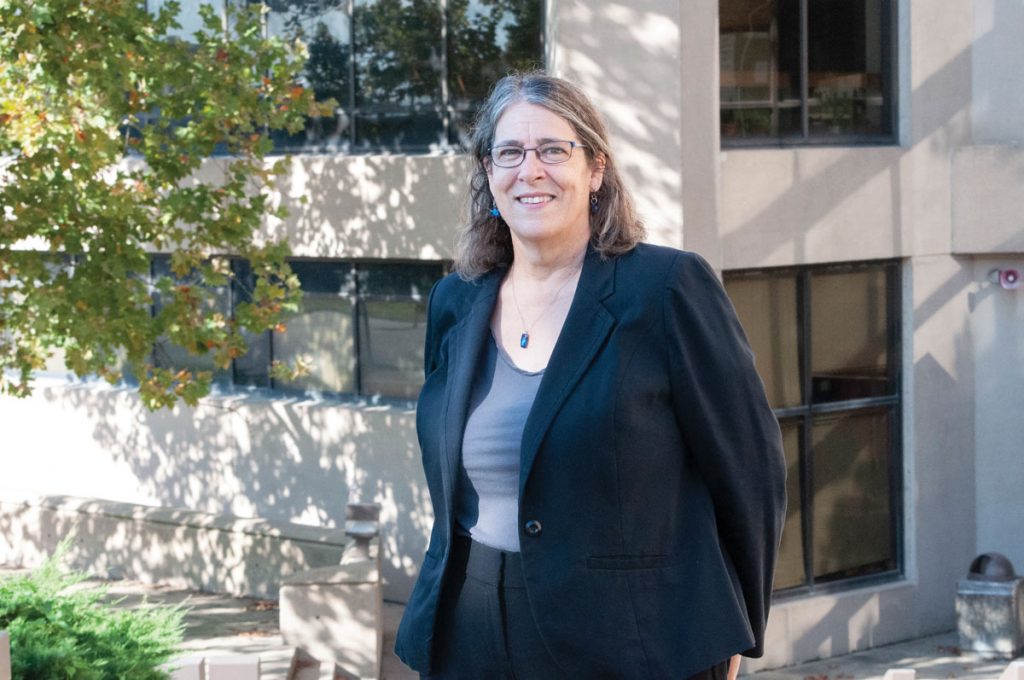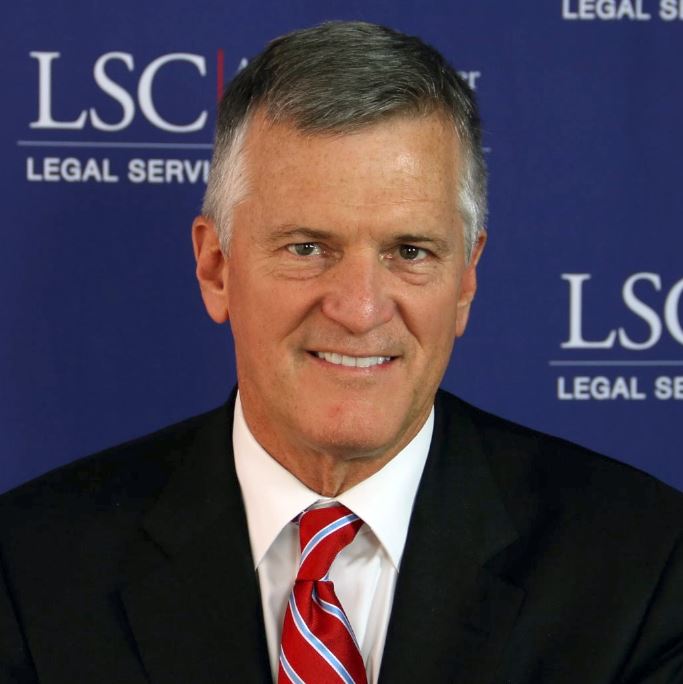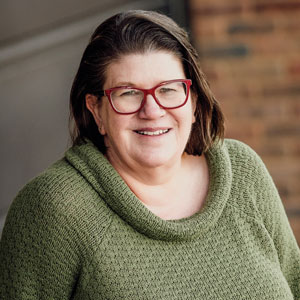KU Law alumni address increased legal needs of low-income Americans

Legal aid organizations across the nation provided legal assistance to low-income individuals and promoted equal access to justice throughout the COVID-19 pandemic.
The organizations continued to provide legal aid services after stay-at-home orders went into effect, courts were closed to non-emergency proceedings and laws were adapted to address the pandemic.
KU Law alumni who work at access to justice organizations assisted clients with a wide range of legal concerns related matters including child support, evictions, IRS/stimulus checks, housing issues and unemployment compensation.

Funding legal aid organizations
Matthew Keenan, L’84, serves on the board of directors of the Legal Services Corporation (LSC), which is based in Washington, D.C. LSC is the single largest provider of civil legal assistance for low-income Americans. Keenan was nominated to his position in May 2019 by President Donald Trump and confirmed by the Senate three months later.
“Nothing brings happiness to an attorney more than helping someone who needs a helping hand,” Keenan said. “Legal Services Corporation, and their grantees like Kansas Legal Services, are the change agent for literally millions of our fellow residents.”
Keenan is also a partner at Shook, Hardy & Bacon, where he has practiced for 35 years primarily focusing on the defense of pharmaceutical and medical device manufacturers.
When the Coronavirus Aid, Relief, and Economic Security (CARES) Act passed in March, LSC received $50 million in emergency funding to address the increased legal needs of low-income Americans because of the pandemic. The funds were distributed among 132 organizations across the nation for COVID-related services and technology upgrades to allow for remote work.
“Local LSC-funded legal aid organizations have reported a significant uptick in COVID-related issues ranging from evictions, foreclosures, unemployment assistance and appeals, consumer debt and income maintenance,” Keenan said.
LSC requested another $50 million from Congress in April and it was included in the Heroes Act passed by the House.
Serving Kansans in need
Kansas Legal Services (KLS) Executive Director Marilyn Harp, L’79, said KLS has seen a 10% increase in the number of applications for legal assistance due to the pandemic. Harp has worked at KLS for 41 years and has served as its executive director for the past 14 years.
“I am crisis management-oriented. So, trying to figure out how to move employees home; meet client needs; and close and reopen offices perfectly suited me,” Harp said.
KLS is a non-profit organization with 12 offices statewide that provide legal services to low income Kansans. Harp and her staff broaden access to justice to 30,000 Kansans each year. This year’s increase translates to about 3,000 additional Kansans who sought legal assistance.
KLS hired eight law students to help with the increased volume of clients. Katie DeVito Erhart, L’20; 3L Harrison Baker; and 2L Natasha Richartz assisted applicants on various legal matters this past summer.
Harp thinks access to lawyers and the court will change permanently due to COVID-19.
“I believe lawyers who are in court regularly have learned how to use their camera and computer. I think it’s going to change things remarkably,” Harp said. “After we get through this, I see the world changing.”

Providing legal assistance through hotline
Katy Kettler, L’19, has helped manage a hotline for people to call with questions related to the Internal Revenue Service’s Economic Impact Payment. The one-time payment, which is also referred to as the stimulus check, provided up to $1,200 to eligible recipients.
“It is clear that people who are struggling are really depending on this check to help them get through the pandemic and not receiving it in a timely manner or at all has created more stress for people,” Kettler said.
Kettler is a staff attorney at the Legal Aid of Western Missouri’s (LAWMO) central Kansas City office. LAWMO has five offices, which serve residents in 40 Missouri counties.
Kettler works within LAWMO’s Consumer Protection Unit, which runs the hotline. More than 1,100 individuals nationwide have used LAWMO’s hotline since its creation in May.
“We are able to answer people’s questions on the stimulus check and can give guidance on what someone needs to do to claim their check or why we think they haven’t received it yet,” Kettler said.

Offering assistance remotely
Montana Legal Services Association (MLSA) Executive Director Alison Paul, L’91, transitioned the MLSA to work remotely within three days of the onset of the pandemic in March. Paul has worked at MLSA for 21 years and has served as its executive director for nine years.
MLSA is headquartered in Helena, Montana. Because the MLSA’s three public offices serve a large and mostly rural state, the staff had prior experience at delivering legal services remotely.
“After a few bumps, we created a fully functioning remotely accessed phone system so that we could continue to answer our helpline and provide legal information and advice to the many Montanans who need our help,” Paul said.
In recent months, MLSA focused on increasing its social media presence and the amount of information available on its website to address emerging legal issues related to COVID-19. MLSA’s website saw a 62% increase in web traffic.
Paul also created policies to take better care of her staff during a stressful time, which includes a wellness leave option and a reduced work week of 32 hours.
“While it has been extra challenging to address a pandemic and required many long hours, it has been rewarding to be able to have a career that allows me to give back to people in need,” Paul said.
— By Ashley Golledge
This story originally appeared in the fall 2020 issue of the KU Law magazine.